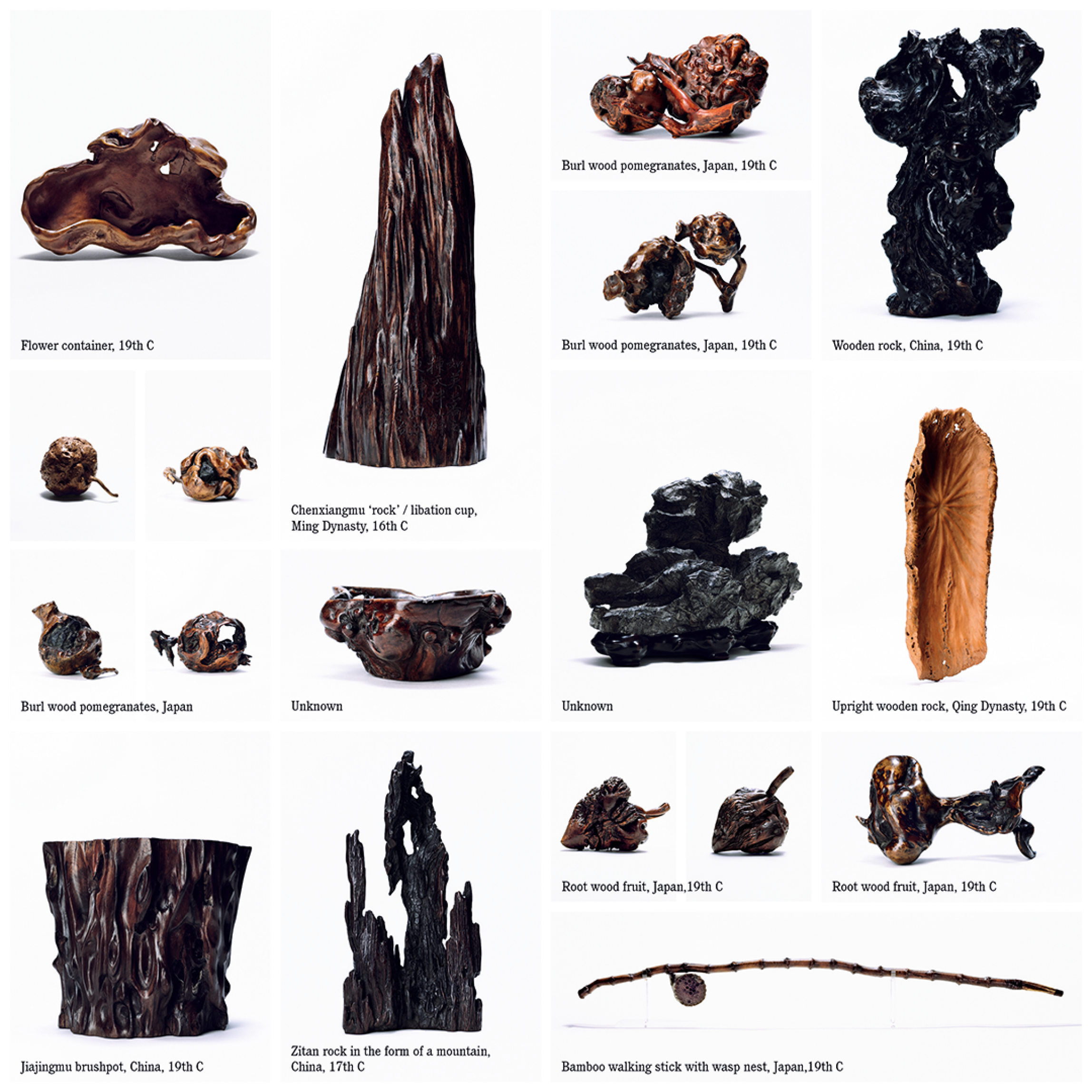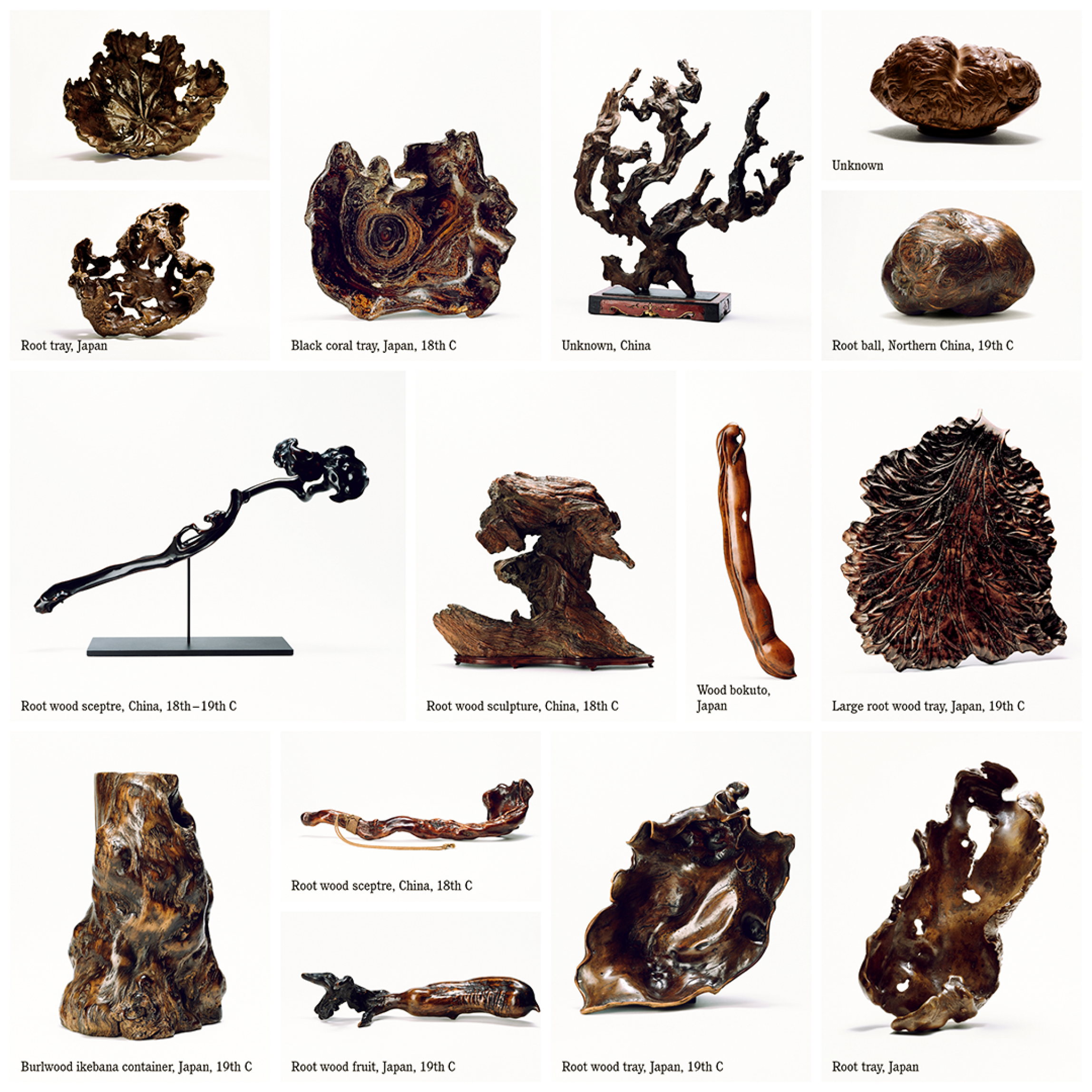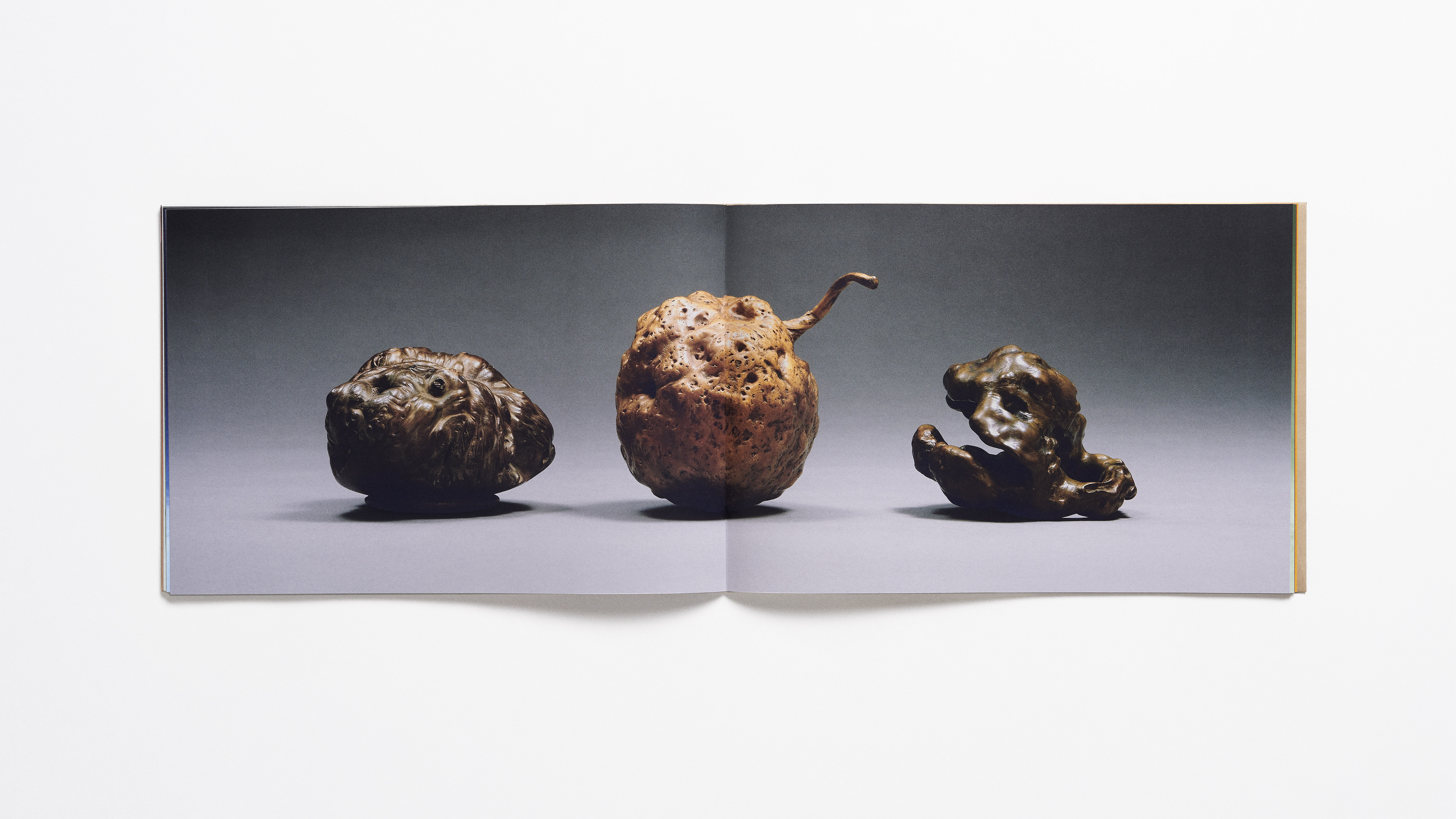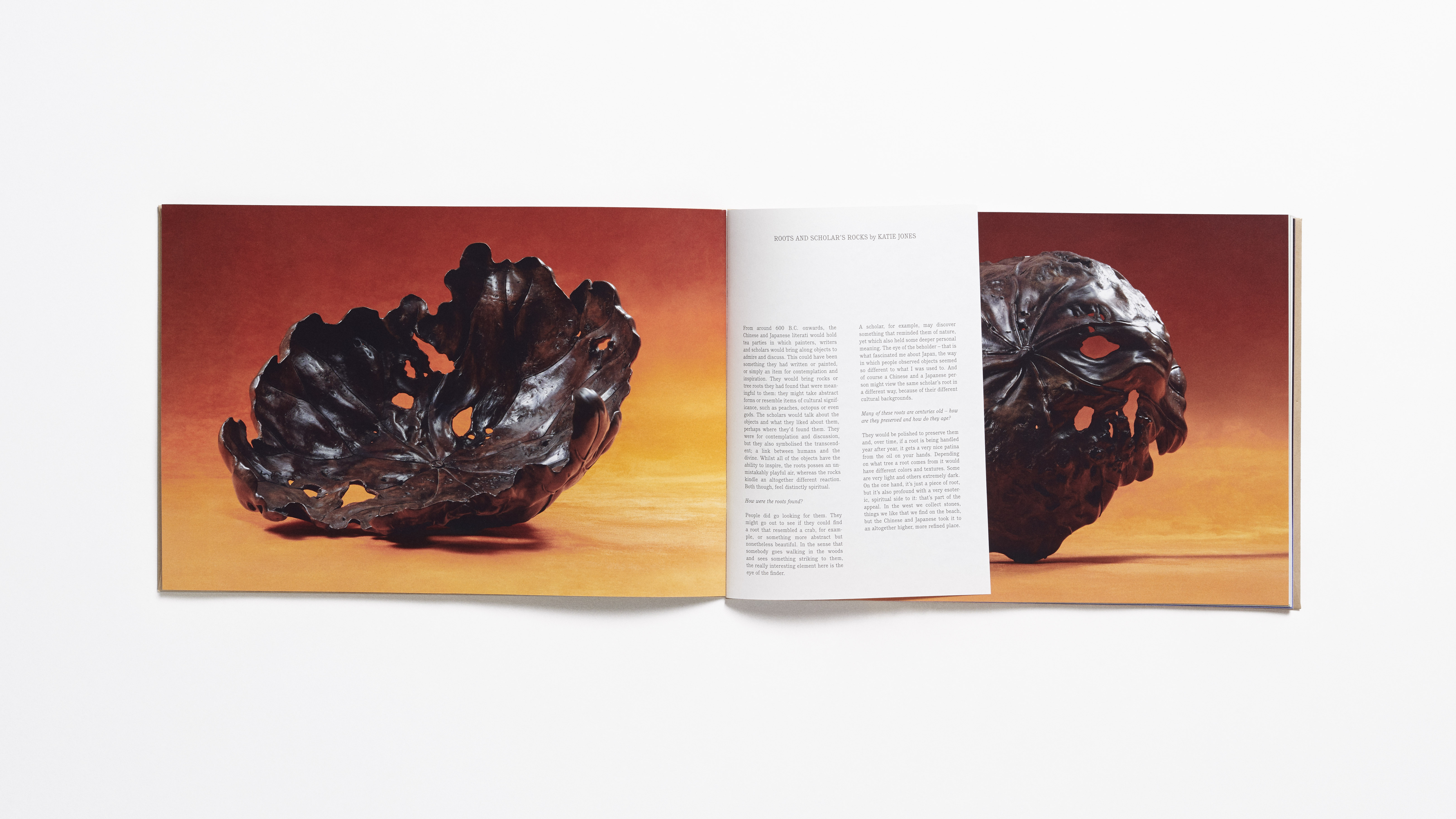
Roots, a catalog documenting one of the largest private collections of ancient scholar’s objects.





From 600 BC onwards, the Chinese and Japanese literati would hold tea parties in which painters, writers and scholars would bring along objects to admire and discuss. These objects, rocks and roots found in nature, were revered for their representation of the universe in miniature - a particular rock may resemble a mountain formation, or a root reminiscent of a grove of trees. The literati considered them microcosms of the natural world and allowed them to meditate on the subject within the confines of their studios or gardens.Despite their deep history and centuries of preservation, there are very few books on the specific subject and very few scholars roots in museums. They are for contemplation and discussion, but they also symbolize the transcendent; a link between humans and the divine. With this catalog we explore the role of roots in their continued ability to spark wonder and inspiration.






